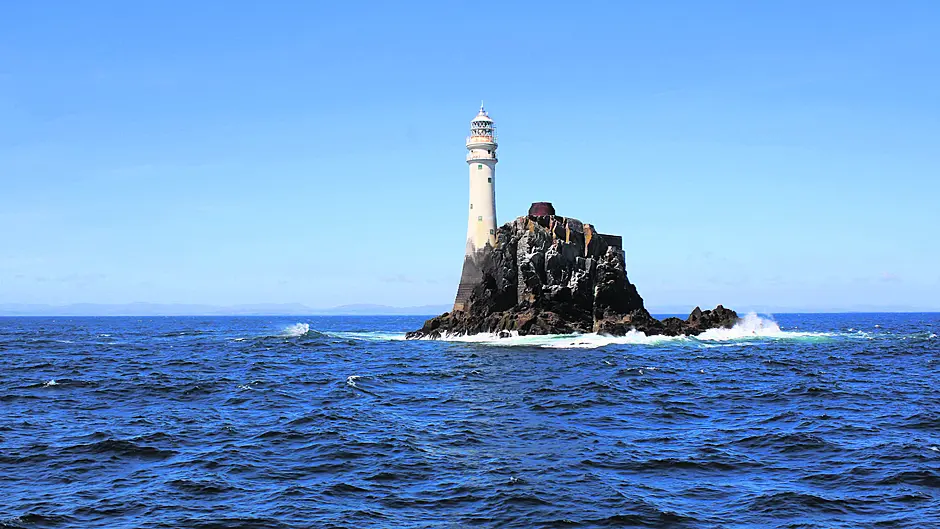A weather buoy off the Fastnet Rock recorded sea surface temperatures close to 12 degrees Celsius during February, exceeding its previous record of 11.5C since its installation in 2002. This trend is mirrored across the northeast Atlantic, says meteorologist VINCENT O'SHEA
AMID ongoing concerns regarding global warming and elevated Atlantic Sea temperatures, there now are fears of a possible future shutdown of the Gulf Stream. The past winter was one of the mildest on record, with raised sea levels during spring tides – especially here along the south coast.
After data was collated at the end of 2023, it showed the year overall to be the second consecutive and warmest on record, and by a large margin. It was also one of the wettest. This successive progression of upward temperatures must surely alert and convince all of us about global warming.
While not record-breaking, latest data from Met Éireann tell us that the winter of 2023/24 overall was considerably milder than average in all parts of Ireland (circa 1C warmer on Sherkin). It was normalised by a rather cool January. It was a wet winter, too, and notably with six named storms.
February was one of the mildest and wettest on record. Even though it seemed quite miserable, dull, and dank with rain, drizzle, and mist on most days here in the south, it was the warmest on record at seven weather stations around the country.
The absolute highest monthly mean (9.4C – averaged over all night and day hours) was at Sherkin Island auto station.
Roches Point, Cork Airport and Moorepark were the other Co Cork stations with their highest ever February average temperatures. It was also a very wet month with total rainfall amounts ranging from 1.5 times normal at Sherkin to more than twice the norm around Cork Harbour.
The weather buoy (M3) positioned 20 nautical miles south west of the Fastnet had sea surface temperatures close to 12C during February, exceeding its previous record of 11.5C since its installation in 2002.
This trend is mirrored across the northeast Atlantic, and indicative of an over warming Gulf Stream.
Recent coastal flooding episodes during astronomical spring tides have again flagged us of rising sea levels.
Places recently afflicted by recurring floods stretch from Ballinspittle through Timoleague, to Rosscarbery (Warren area), Lough Hyne and Bantry, amongst many other low-lying places. The events during October 2023 and the second week of February 2024, were due to a combination of supermoons coinciding with springs, and a residual southerly storm surge from previous weeks persistent rain and gales.
Since time immemorial, we in West Cork have enjoyed the warming influence of the Gulf stream ocean current.
Oceanographers call it the Atlantic meridional overturning circulation (Amoc). It keeps our grass green throughout the year, with winter frosts and snows a rarity.
The AMOC transports heat northwards in the Atlantic and is driven by differences in temperature and salinity, and therefore density of the sea water.
As the water cools, the higher salt content allows it sink deep into the ocean in a process called ‘downwelling’ and spreads southwards.
It eventually warms and is pulled back to the surface at the tropics ‘upwelling’, and the circulation is complete. This is nature’s way of distributing heat around the earth.
Climate models tell us the Amoc will weaken later in the 21st century as greenhouse gases increase. The seas will be warmer and with higher rainfall and increased glacier/Arctic ice melt, and sinking will be reduced, making for a weaker stream.
Moreover, if freshwater input exceeds a certain threshold (tipping point), the Amoc could weaken to a collapsed state. Supercomputer simulations have produced conflicting results, and luckily it’s thought big changes are unlikely, at least this century.
Flood defences erected by the OPW and Cork Co Council at Skibbereen, Clonakilty and recently the relief scheme at Bandon with its early warning system, seem to be coping well, but may need to be extended more widely in West Cork.
All told – as March came in like a roaring Lion, let’s hope it goes out like a bleating lamb.
• Vincent O’ Shea MBA, MSc is a senior meteorologist.










